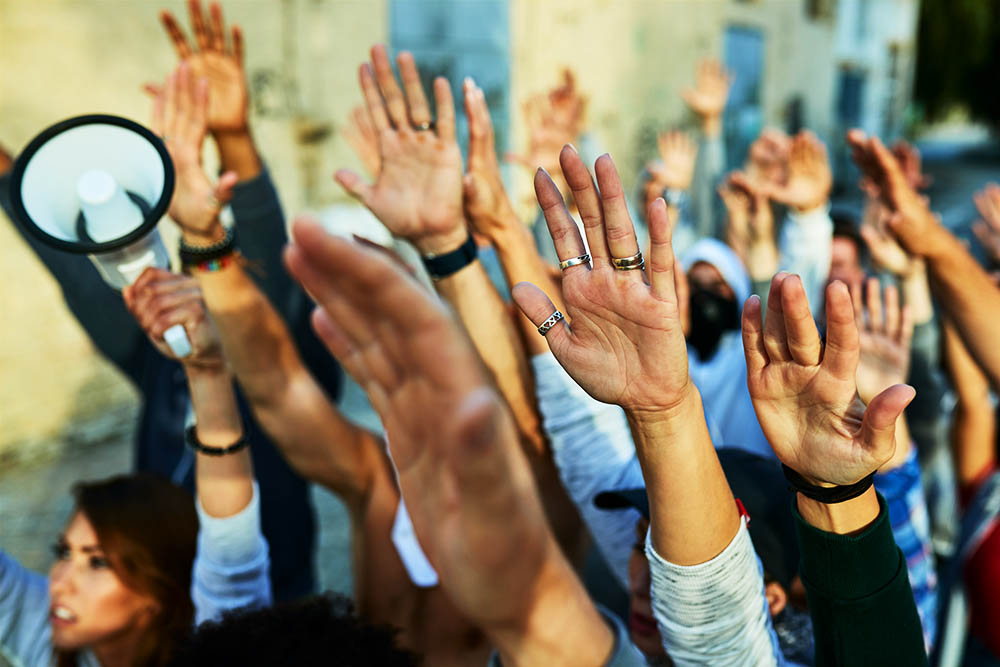Racism is an issue that has been prevalent in societies for decades, and despite the progress made in fighting it, it remains a problem that plagues many people. Everyone deserves to be treated with dignity and respect, regardless of their race or ethnicity.
Racism is not only morally wrong, but it also has a negative impact on economies, quality of life, and social cohesion. It’s well past time for Americans to face this issue head-on and take active measures to stamp out racism in all its forms.
The Impact of Racism
The negative effects of racism are felt across many aspects of life, including health, education, and employment. Racism takes a toll on individuals and communities, leading to poor mental health outcomes, lower educational attainment, and reduced economic opportunities.
In the healthcare system, for example, people of color are more likely to face discrimination and receive lower quality care. They are also more likely to suffer from stress-related health problems due to prejudice and discrimination.
In education, systemic racism causes unequal funding, lower academic achievement, and high dropout rates among students of color. This perpetuates a cycle of poverty and social exclusion, locking many people out of opportunities to improve their lives and contribute to their communities.
Racism has also been shown to harm the economy. Cost of racism includes decreased productivity, missed opportunities for innovation, and reduced consumer buying power. A society that values diversity, on the other hand, is more likely to benefit from creativity and the sharing of ideas, which can lead to growth and progress.
Fighting Racism Across Society
To fight racism, it’s essential to understand the various forms it can take and the root causes behind it.
Systemic racism, for example, is embedded in social structures and institutions and perpetuated by policies, practices, and laws. It’s often invisible and difficult to pinpoint but has far-reaching impacts on individuals and communities.
Individual racism, on the other hand, refers to the beliefs, attitudes, and behaviors of those who hold prejudiced views or discriminate against marginalized communities. Implicit bias, or unconscious attitudes or stereotypes, can play a role in individual racism.
Fighting racism requires a multi-pronged approach. Some steps American can take, include:
1. Educate ourselves and others
Education plays a significant role in combating racism. Individuals need to take responsibility for actively seeking out and learning about the experiences of marginalized communities beyond their own.
We should educate ourselves about the history of race and racism in America, learn about the experiences of people of color, and seek out information about systemic injustices. We should also identify areas where we hold bias and work to challenge them.
2. Support anti-racist initiatives
It’s essential to support anti-racist organizations and initiatives that aim to address the root causes of racism. This could mean joining a local activist group or donating to organizations that are doing important work.
We can also support policies that address systemic racism by supporting political candidates who champion these causes.
3. Speak out against racism
Silence and inaction can be complicit in perpetuating racism. It’s essential to speak out against racist attitudes and behaviors when we see them, whether it’s among friends, family or in the workplace.
It’s important to be an ally to people of color by amplifying their voices on social media, supporting them in their struggles, and advocating for their needs when appropriate.
4. Engage in difficult conversations
Conversations about race are often uncomfortable, challenging, and can elicit strong emotions. However, it’s crucial to engage in these conversations, both with ourselves and with others.
We need to talk about white privilege, implicit bias, and other challenging topics. Being willing to be uncomfortable and listen deeply to others’ experiences can help us understand how racism operates in our society and what we need to do to fight it.
5. Work to change policies
Systemic racism is perpetuated by policies, laws, and practices that have been built over time. It’s essential to work toward policy changes that address these root causes and create a more equitable society.
This could mean advocating for police reform, supporting affirmative action policies, or working to address the income and wealth gap that disproportionately affects communities of color.
Conclusion
Racism remains a pervasive problem in American society, and it’s time for us to take active measures to stamp it out for good. By educating ourselves, speaking out against racist attitudes and behaviors, supporting anti-racist initiatives, engaging in difficult conversations, and working to change policies, we can make progress toward a more equitable future. It’s not going to be easy, but it’s essential work that we must undertake together.
